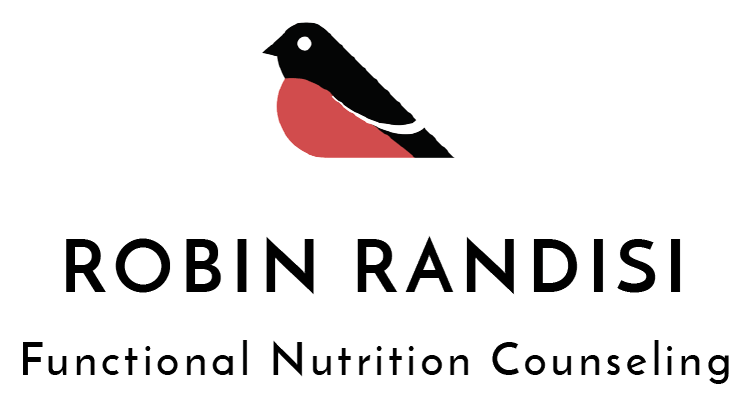What is functional nutrition?
Functional nutrition is also known as functional medicine nutrition. It's an offshoot of functional medicine, and it’s informed by the same principles. Functional nutrition:
Recognizes the interconnectedness of all systems in the body
Seeks to restore optimal health and function
Addresses the underlying causes of illness instead of only the symptoms
Embraces the importance of bio-individuality and personalized nutrition
Emphasizes a therapeutic partnership between the client and practitioner
Is evidence-based
In clinical terms, utilizing a functional approach means being a health detective. It means constantly asking why something might be happening in the body, and slowly but surely peeling back multiple, onion-like layers to get at the root causes of symptoms or diseases.
Root causes can include things like stealth infections, lack of nutrients, impaired digestive function, blood sugar dysregulation, hormonal imbalances, environmental toxins, or inflammation. Root causes can also go beyond the physical and include things like stress, trauma, systemic racism, ableism, transphobia, homophobia, fatphobia and diet culture, patriarchy, and capitalism—just to name a few. (In fact, it’s my position that the functional medicine community and the holistic wellness world need to do a lot better at acknowledging and addressing the social determinants of health; you can read more about my commitment to dismantling the systemic barriers and oppressive structures that are detrimental to health here.)
For example, say you're having irregular periods. When viewed through a functional lens, we see a symptom like that as the body’s way of communicating that something needs attention. Instead of artificially "regulating" your menstrual cycle with birth control pills and leaving it at that, taking a functional approach means asking why your period is irregular in the first place, and that could be for any number of reasons, like PCOS, blood sugar dysregulation, stress or trauma, overtraining, undereating, or nutrient deficiencies. We first try to identify the underlying issues that are causing symptoms and then work to implement a plan to address them.
Functional practitioners are always looking at the big picture, not just specific symptoms. We take into account the entire individual and their unique life circumstances, background, and biochemistry in order to piece together a larger context that determines our plan of action. The result is that two people with the exact same symptoms or diagnosis could require two very different nutrition plans.
That’s what a bio-individual approach really comes down to, and that’s why the functional nutrition counseling process takes time to unfold—because we’re not trying to simply suppress a symptom; we’re working together to figure out how to give your body what it needs to heal on its own, from the inside out, whenever possible.
I’m here to provide guidance and support for my clients, but ultimately, they’re the ones in the driver’s seat making changes and doing the work to feel better—which is why a functional, bio-individualized approach can be so empowering!
Have questions?
Check out my FAQ page for answers to the most frequently asked questions about becoming a functional nutrition client.





